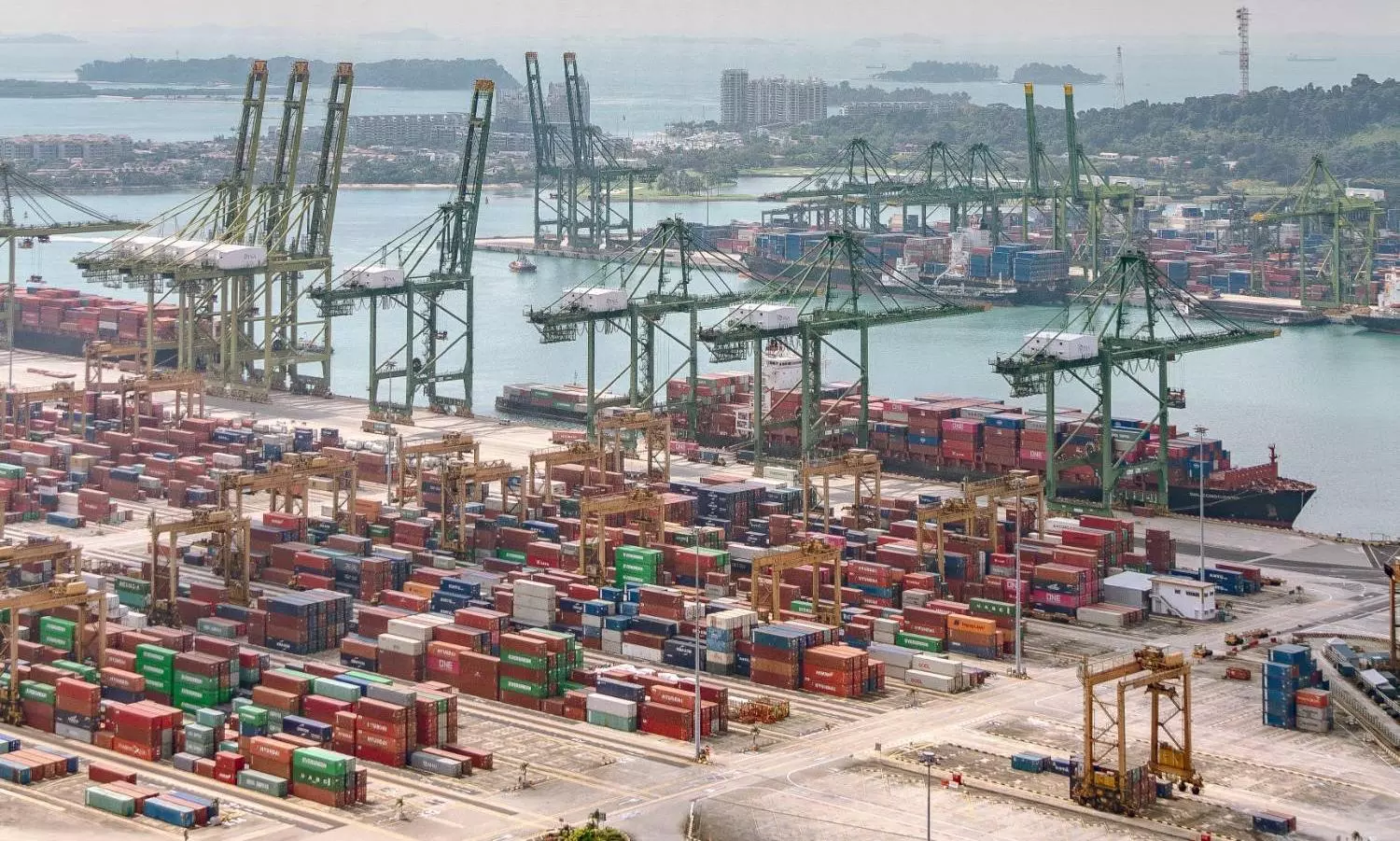Singapore tops new global ranking of container ports in LCP report
The indicators include data on throughput, berth productivity, emissions per TEU and the availability of alternative fuels.

Port of Singapore, Source:Wikipedia
Singapore has been named the world’s leading container port in the first edition of the Leading Container Ports of the World report published by DNV and Menon Economics. Shanghai and Ningbo-Zhoushan ranked second and third, with Rotterdam and Busan completing the top five.
The report is based on a study of 160 ports assessed through 35 indicators grouped under enablers, connectivity and customer value, productivity, sustainability and overall impact. The indicators include data on throughput, berth productivity, emissions per TEU and the availability of alternative fuels. The ranking is supported by expert insights from shipping industry stakeholders.
Maritime transport carries most of global trade by volume, and the report notes that container ports are facing shifts in trade, advances in technology and rising pressure to meet climate goals. The authors said the ranking is intended to support port operators and policymakers as they plan for future needs.
“Container ports quietly underpin much of the global economy. Every year, they move more than 930 million TEUs, supporting the flow of goods that keep businesses running and communities supplied,” said Knut Ørbeck-Nilssen, CEO Maritime at DNV. He said, “As global trade patterns shift and the industry faces new pressures, ports that are able to adapt, communicate clear strategies, and invest in future-proofing their operations will continue to lead and set the pace for the sector’s evolution. This report aims to provide trusted insights that help ports and stakeholders navigate these changes with confidence."
The report recommends that ports focus on infrastructure, digitalisation, sustainability and strong customer relationships. It highlights the role of port authorities in shaping long-term strategies that support productivity and service quality. It notes that efforts by port authorities to close performance gaps are visible across several regions.
Dr Erik Jakobsen, partner and chair of Menon Economics, said, “The top-performing container ports are both expanding capacity and rethinking how technology shapes daily operations. We see ports where automation and digital tools are woven into every process, from vessel scheduling to cargo handling. Investments in cleaner energy and integrated transport links are also making a difference, helping ports operate more efficiently and adapt to new demands.”
Singapore secured the highest overall score and led in all five pillars. The port is connected to major shipping lines and offers the highest number of mainline services. Shanghai processed 51.5 million TEUs in 2024 and scored high in connectivity. Ningbo-Zhoushan recorded strong growth in recent years and continued to expand its global links. Busan remained a key transshipment point in Northeast Asia, while Rotterdam led Europe in size and investment in energy transition and digital systems.
The report also features regional rankings. New York and New Jersey, Hamburg, Tanger Med, Jebel Ali and Sydney were recognised as regional leaders.



